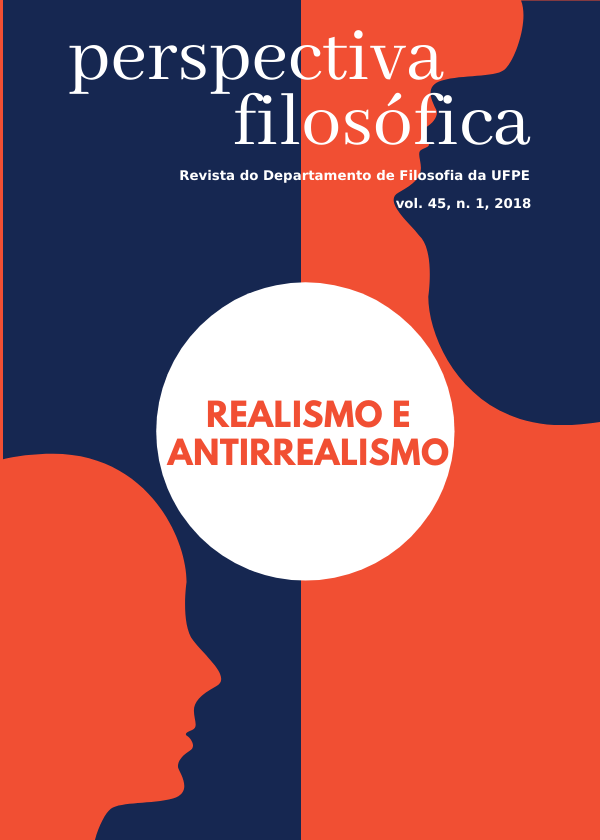Resistência e liberdade na crítica da razão política de Michel Foucault: a Filosofia como prática da parrhesia
DOI:
https://doi.org/10.51359/2357-9986.2018.234816Keywords:
political philosophy, critique of political reason, FoucaultAbstract
This paper sets out to analyze the political critique of reason established by the late Foucault, his membership of the Kantian critical tradition, as well as his transcendence, and the requirement for a new ethic based on aesthetic values. Proceeding to the reading and analysis of some texts written in the late 1970s and early 1980s, our project will seek to elucidate the ethical-aesthetic-political Foucault through his critical project, stressing the importance of archgenealogical analysis in order to understand the modern arts of government and the ontology of ourselves. When we revive Foucault’s questions on his last texts, an update is taken place in the philosophica. l thought: to be aware of the excesses practiced by the power’s rationality, as well as to renew the practice of liberty in scenarios where power acts without restraints. The search for different ethics, capable of breaking the limits of representational thought, is necessary in this scenario: refuse what we are and shape into another system of thought in order to achieve a reflected, actual practice of freedom. It should also investigate the importance of the concept of parrhesia, here translated by true speech, developed in recent courses administered by Michel Foucault at the Collège de France in order to achieve maximum power in the revolted ethics advocated by the philosopher.References
FOUCAULT, Michel. “A ética do cuidado de si como prática de liberdade”. In:FOUCAULT, Michel. Ditos & Escritos V: Ética, sexualidade, política. Rio deJaneiro: Forense Universitária, 2010d. p.264-287.
FOUCAULT, Michel. “A filosofia analítica do poder”. In: FOUCAULT, Michel.Ditos & Escritos V: Ética, sexualidade, política. Rio de Janeiro: ForenseUniversitária, 2010a. p.37-55.
FOUCAULT, Michel. “Do direito dos homens face aos governos”. In:FOUCAULT, Michel. Ditos & Escritos VI: Repensar a política. Rio de Janeiro:Forense Universitária, 2010e. p.369-370.
FOUCAULT, Michel. “Do governo dos vivos”. In: Revista Verve, Nu-Sol/PUC-SP, nº 12. 2007, p. 270-297
FOUCAULT, Michel. “É inútil revoltar-se?”. In: FOUCAULT, Michel. Ditos &Escritos V: Ética, sexualidade, política. Rio de Janeiro: Forense Universitária,2010c.p.77-81.
FOUCAULT, Michel. “Michel Foucault entrevistado por Hubert L. Dreyfus ePaul Rabinow”. In: DREYFUS, H.L., RABINOW, P. Michel Foucault: uma trajetória filosófica: para além do estruturalismo e da hermenêutica. Rio de Janeiro:Forense Universitária, 2010f. p.296-327
FOUCAULT, Michel. O Governo de Si e dos Outros. São Paulo: Martins Fontes,2010g.
FOUCAULT, Michel. “O que são as luzes?”. In: FOUCAULT, Michel. Ditos &Escritos II: Arqueologia das Ciências e História dos sistemas de pensamento. Rio deJaneiro: Forense Universitária, 2008. p.335-351.
FOUCAULT, Michel. “O sujeito e o poder”. In: DREYFUS, H.L., RABINOW,P. Michel Foucault: uma trajetória filosófica: para além do estruturalismo e da hermenêutica.Rio de Janeiro: Forense Universitária, 2010b. p.273-295.
FOUCAULT, Michel. “Omnes et Singulatim’: uma crítica da razão política”. In:FOUCAULT, Michel. Ditos & Escritos IV: Estratégia, poder-saber. Rio de Janeiro:Forense Universitária, 2010d. p.355-386.
GROS, Frédric. “A parrhesia em Foucault (1982-1984)”. In: GROS, Frédric(org.). Foucault: a coragem da verdade. São Paulo: Parábola Editorial, 2004. p.155-166.
HACKING, Ian. Ontologia Histórica. Rio Grande do Sul: Unisinos, 2009.
KANT, Immanuel. Crítica da Razão Pura. Lisboa: Calouste Gulbekian. 2011
KANT, Immanuel. O que é o esclarecimento?. Rio de Janeiro: Via Verita, 2013.
Downloads
Published
Issue
Section
License
A Revista Perspectiva Filosófica orienta seus procedimentos de gestão de artigos conforme as diretrizes básicas formuladas pelo Conselho Nacional de Desenvolvimento Científico e Tecnológico (CNPq). http://www.cnpq.br/web/guest/diretrizesAutores que publicam nesta revista concordam com os seguintes termos:
Os autores mantém os direitos autorais e concedem à revista o direito de primeira publicação, sendo o trabalho simultaneamente licenciado sob https://creativecommons.org/licenses/by/4.0/deed.pt_BR que permite o compartilhamento do trabalho com reconhecimento da autoria e publicação inicial nesta revista.
Os autores têm autorização para assumir contratos adicionais separadamente, para distribuição não-exclusiva da versão do trabalho publicada nesta revista, com reconhecimento de autoria e publicação inicial nesta revista (Consultar http://opcit.eprints.org/oacitation-biblio.html).

Esta revista está licenciada com uma Licença Creative Commons Atribuição 4.0 Internacional.













